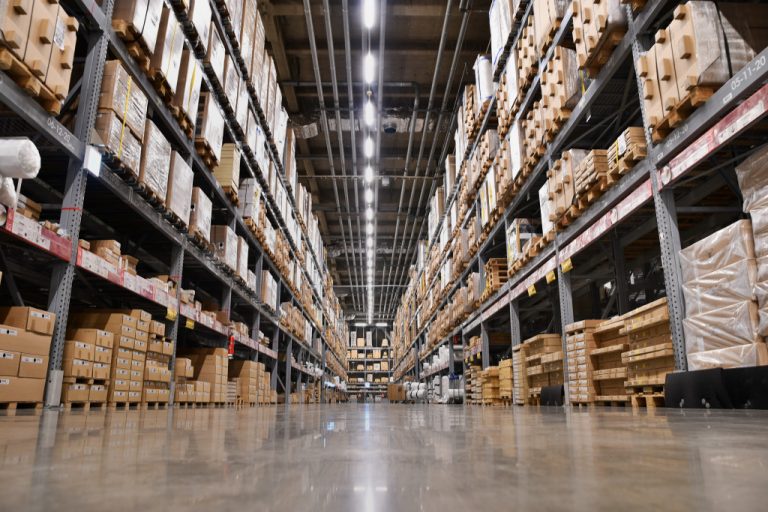In the world of business, logistics is one of the most critical aspects. It’s the process that ensures goods and materials are transported to and from suppliers and customers promptly and efficiently. In recent years, however, this process has undergone significant changes with the advent of innovative technologies. Here are seven such technologies that are transforming the logistics industry:
Fleet Management Software
Logistics is a critical part of any business, and its importance has only grown in recent years as globalization has made supply chains more complex. As a result, there is intense pressure on logistics companies to improve efficiency and lower costs. Fortunately, innovative technologies like fleet management software are helping to transform the industry.
Fleet management software provides real-time visibility into the location of vehicles and assets, allowing companies to optimize routes and minimize downtime. In addition, the software can automatically generate reports on driver performance, fuel usage, and maintenance needs. As these and other technologies become more widely adopted, the logistics industry will continue to become more efficient and responsive to the needs of businesses.
Warehouse Management Systems
For years, the logistics industry has relied on traditional technologies to manage warehouse operations. However, these technologies are no longer adequate to meet the needs of today’s businesses. Fortunately, innovative new technologies like warehouse management systems (WMS) are transforming the logistics industry.
WMS is designed to provide real-time visibility into warehouse operations, enabling businesses to improve their efficiency and productivity. In addition, WMS can help to reduce errors and improve accuracy levels. As a result, companies implementing WMS can enjoy significant cost savings and improved customer satisfaction.
The benefits of WMS are clear. However, it is essential to choose the right WMS for your business. There are many WMS on the market, so selecting one that is compatible with your existing systems and meets your specific needs is essential. With the right WMS, your business can enjoy all the benefits this innovative technology offers.
Big Data and Analytics
The logistics industry is undergoing a period of transformation, thanks to the advent of innovative technologies like big data and analytics. By harnessing the power of big data, logistics companies can gain insights into the movement of goods and people worldwide. This information can optimize routes, reduce costs, and improve customer service.

Analytics is also being used to predict trends and forecast demand. This allows logistics companies to be more agile and responsive to changing needs. As a result, the logistics industry is becoming more efficient and effective, benefiting businesses and consumers.
Radio-Frequency Identification
Innovative technologies transform the logistics industry by making tracking inventory and streamlining shipping operations easier. One of the most promising new technologies is radio-frequency identification or RFID. RFID tags are attached to products and can be read by special scanners. This allows businesses to track the location of their inventory at all times, which can be a significant asset for companies that ship large volumes of goods.
In addition, RFID tags can store other important data such as product type and expiration date. This information can automate shipping operations and reduce the need for manual data input. As a result, RFID is helping to make the logistics industry more efficient and cost-effective.
Blockchain
The logistics industry is responsible for transporting and storing goods throughout the supply chain, from suppliers to manufacturers to retailers. In recent years, the industry has been under pressure to become more efficient and cost-effective. As a result, logistics companies have been turning to innovative technologies like blockchain to help streamline their operations.
Blockchain is a distributed database that allows all participants in the supply chain to view, track, and verify shipments in real-time. This transparency can help reduce delays and errors and enable companies to identify potential problems before they cause significant delays. In addition, blockchain can create smart contracts that automatically execute when certain conditions are met.
For example, a smart contract could be used to release payment to a trucking company only after the shipment arrives at its destination. By using blockchain, logistics companies can make their operations more efficient and responsive to the needs of their customers.
Artificial Intelligence
One of the most rapidly changing industries today is logistics. With the ongoing pandemic, there has been an increase in e-commerce and a corresponding need for faster and more efficient shipping. At the same time, customers are demanding greater transparency and tracking of their shipments. These challenges have created an opportunity for innovative technologies like artificial intelligence (AI) to transform logistics companies’ operations.
By automating many tasks in tracking and managing shipments, AI can help logistics companies improve their efficiency and accuracy. In addition, AI can also provide customers with real-time updates on the status of their shipments. As a result, AI is quickly becoming an essential tool for anyone involved in the logistics industry.
The technologies mentioned earlier are just a few transforming the logistics industry. With the help of these technologies, logistics companies can improve efficiency, optimize operations, and provide better service to their customers.

